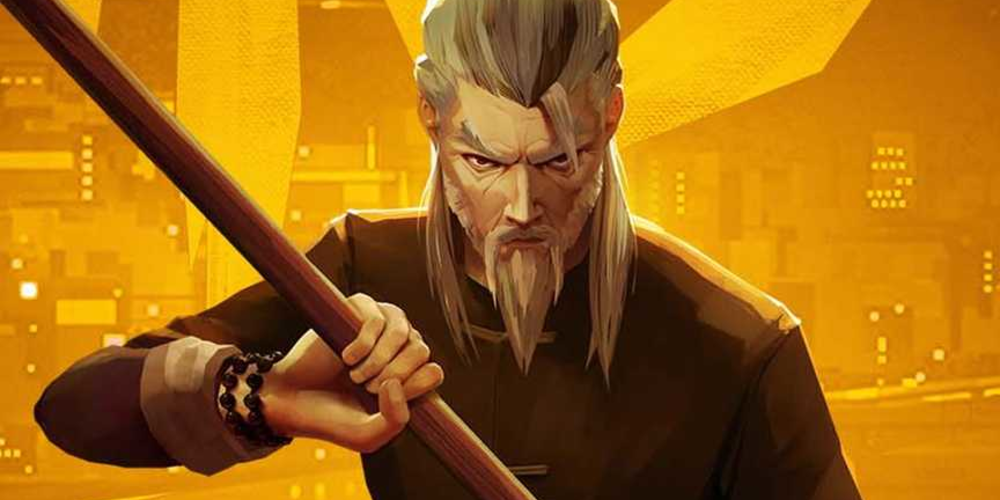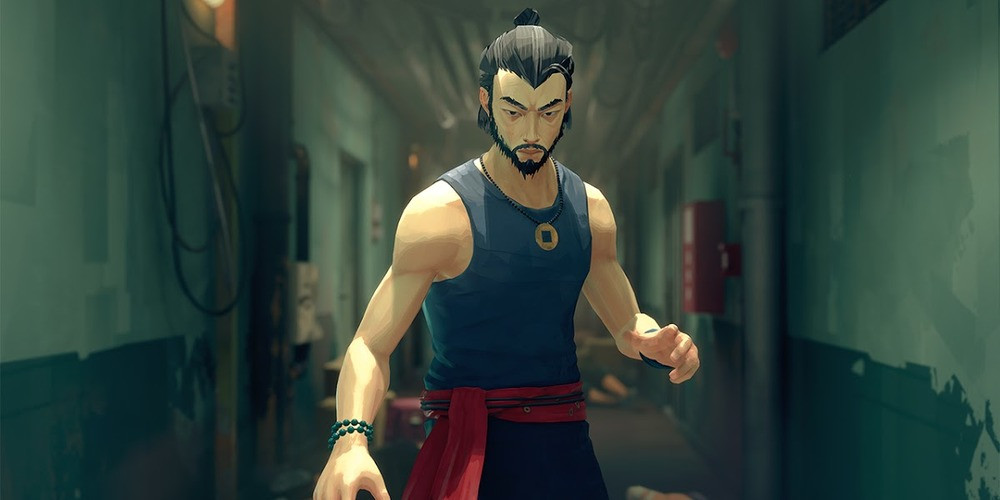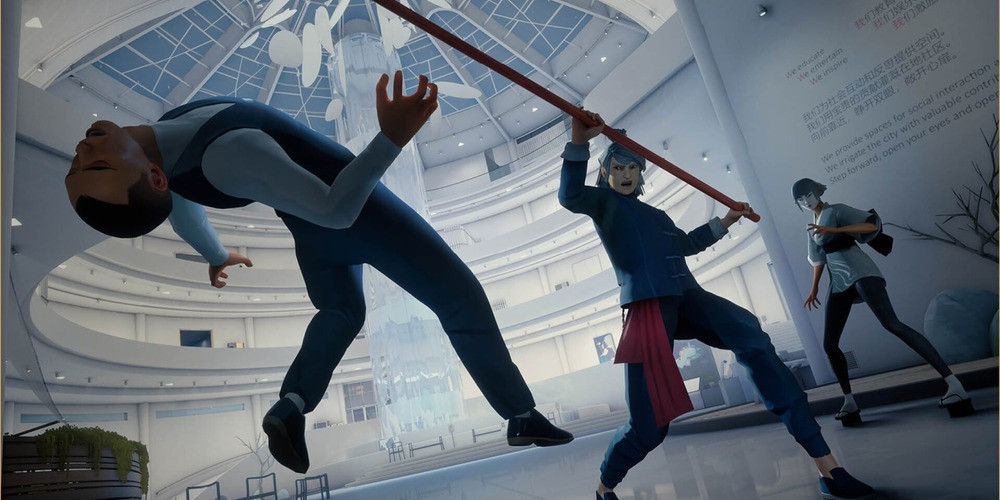A Sifu 2 Would Be Wise to Wield the Ferocity of Dev Patel’s Monkey Man

Sifu emerged as one of the most stylish action games in recent memory. Although the prospect of a sequel remains uncertain, the potential for future games is vast, as long as they incorporate a similar age manipulation feature and maintain gameplay authenticity around those mechanics. Sifu was undoubtedly a challenging action game, demanding players to master the intricate nuances of directional mixed martial arts to systematically dismantle various enemies and creatively utilize tools and environments available to them.
Sifu was unique in its aesthetic and storytelling approach, even if its narrative wasn't groundbreaking. The game's combat stood out due to the iconic set pieces and action movies it paid homage to, such as the panning corridor shot in Oldboy. This led many players to explore fan-made mods where Sifu’s protagonist was reskinned to resemble characters like Charlie Cox’s Daredevil, Keanu Reeves’ Neo, and Robert Pattinson’s Batman. If there were ever a sequel to Sifu, it would be fascinating to see it draw inspiration from Dev Patel’s Monkey Man and its titular character, Kid.
Monkey Man’s Action is Fueled by Impassioned Violence and Improvisation

Monkey Man’s Kid is adept at handling himself in combat and can make a living doing so. However, what sets Monkey Man apart from action movies like John Wick—besides its profound cultural roots—is Kid's lack of prestige as a seasoned assassin. Instead, Kid is a man seeking vengeance for a wrong he suffered as a child. Much like Bruce Wayne’s Batman, he has sacrificed any semblance of a ‘normal’ life to pursue his own brand of justice.
Monkey Man twists the knife emotionally, making Kid’s rampage more palpable, especially in the beginning when he schemes his way into Kings to get close to Rana. The action itself is authentic and visceral, featuring some of the most original combat techniques imaginable. For example, Kid bites the handle of a knife to press its blade into a man's neck while they are entangled in an elevator.
Unlike John Wick, Kid fails to eliminate Rana with the handgun he acquires and never uses firearms again. Instead, he relies on his fists and improvises with ordinary items as weapons, perfectly suited for Sifu’s action cinema-inspired gameplay.
A Sifu Sequel or Successor Needs to Understand the Raw Emotion of Monkey Man
Monkey Man is not the only action movie where empathy toward the protagonist is crucial. However, the film takes a risk by placing a significant lull between Kid's initial and final infiltrations of Kings, allowing him to recover and train. This narrative choice is emotionally impactful and necessary for the story to be as meaningful as it is.
Interestingly, Sifu never offers a respite to its players. The story is always looming, and each boss is central to the protagonist's ongoing goal. However, the narrative can easily take a back seat to the arresting gameplay, which becomes Sifu’s primary takeaway. In a sequel, it would be phenomenal to see Sifu’s Detective Board interactions expanded, allowing players to explore and immerse themselves in more than a single hub.
If a Sifu sequel stripped combat away for as long as Monkey Man does, it would allow for a greater appreciation of the story, protagonist, and combat itself when enough distance is put between it and the player.
Building Depth: A Sequel’s Potential

Part of Sifu’s charm lies in the development of mastery over its elaborate combat system. However, even a single scripted sequence that removes players from the constant battling could add significant depth. Such a pause would enable players to focus on other aspects of the game, enriching the overall experience.
Sifu’s gameplay is intense and demands a high level of skill and strategy. Adding narrative elements that require players to step away from combat would not detract from the game's core. Instead, it would offer a more rounded experience, allowing players to connect with the protagonist on a deeper level.
The Emotional Weight of Storytelling
The emotional weight carried by Monkey Man is one of its strongest aspects. A Sifu sequel could benefit immensely from incorporating similar emotional depth. The protagonist’s journey, filled with personal vendettas and sacrifices, would resonate more with players if they were given time to understand and empathize with his plight.
Introducing sequences that delve into the protagonist's backstory, motivations, and inner struggles would create a richer narrative. These elements, combined with Sifu’s already impressive combat mechanics, would make for a compelling and unforgettable game.
Expanding the World of Sifu
In addition to deepening the narrative, a sequel could expand the world of Sifu. Offering more diverse environments and scenarios where players can explore and interact would add layers to the gameplay. This expansion could include various hubs, each with unique challenges and storylines, enhancing the overall depth and replayability of the game.
Moreover, incorporating cultural elements, as seen in Monkey Man, would provide a fresh and authentic experience. The inclusion of diverse settings and backgrounds would not only enrich the game's aesthetic but also its storytelling potential.
Conclusion: A Vision for Sifu 2
Sifu was a remarkable action game that set high standards with its unique gameplay and aesthetic. A sequel that draws inspiration from the emotional and visceral storytelling of Monkey Man has the potential to elevate the series to new heights. By incorporating deeper narrative elements, expanding the world, and providing moments of respite from combat, Sifu 2 could offer a more rounded and emotionally engaging experience.
As players, we can only hope that the developers recognize the potential for growth and innovation in a Sifu sequel. The fusion of raw emotion, cultural authenticity, and intricate combat mechanics could create a game that not only pays homage to its predecessor but also stands as a masterpiece in its own right.
Latest posts
See more-
![The Last of Us Part II: In-Depth Character Analysis and Storyline Exploration]() Editor’s Choice
2024-08-11
The Last of Us Part II: In-Depth Character Analysis and Storyline Exploration
The Last of Us Part II is an action-adventure video game that has gained significant popularity since its inception. Developed with immense creative prowess by...
Editor’s Choice
2024-08-11
The Last of Us Part II: In-Depth Character Analysis and Storyline Exploration
The Last of Us Part II is an action-adventure video game that has gained significant popularity since its inception. Developed with immense creative prowess by...
-
![CrossCode Developer Announces Alabaster Dawn, Enters Early Access in Late 2025]() News
2024-08-12
CrossCode Developer Announces Alabaster Dawn, Enters Early Access in Late 2025
In 2021, Radical Fish Games initially introduced a new action RPG titled Project Terra. Now, they have officially named it Alabaster Dawn and announced that...
News
2024-08-12
CrossCode Developer Announces Alabaster Dawn, Enters Early Access in Late 2025
In 2021, Radical Fish Games initially introduced a new action RPG titled Project Terra. Now, they have officially named it Alabaster Dawn and announced that...
-
![Alabaster Dawn Planned to Have 30-60 Hours of Playtime, Demo Launching in Early 2025]() News
2024-08-13
Alabaster Dawn Planned to Have 30-60 Hours of Playtime, Demo Launching in Early 2025
Radical Fish Games has made an exciting announcement regarding their upcoming action RPG, Alabaster Dawn, which is set to enter early access in 2025. In...
News
2024-08-13
Alabaster Dawn Planned to Have 30-60 Hours of Playtime, Demo Launching in Early 2025
Radical Fish Games has made an exciting announcement regarding their upcoming action RPG, Alabaster Dawn, which is set to enter early access in 2025. In...
Latest Reviews
See more-
![]() Action
Cult of the Lamb
Action
Cult of the Lamb
-
![]() Action
WILD HEARTS™
Action
WILD HEARTS™
-
![]() Casual
Gacha Club
Casual
Gacha Club
-
![]() Action
Call of Duty®: Warzone™ 2.0
Action
Call of Duty®: Warzone™ 2.0
-
![]() Action
Gacha Cute
Action
Gacha Cute
-
![]() Action
Cuphead - The Delicious Last Course
Action
Cuphead - The Delicious Last Course










